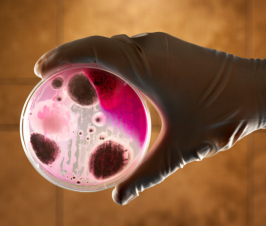Some chemical alternatives to plastic bisphenol-a (BPA), which is still commonly used in medical settings such as operating rooms and intensive care units, may be less disruptive to heart electrical function than BPA, according to a pre-clinical study from Children’s National Hospital that explored how the structural analogues bisphenol-s (BPS) and bisphenol-f (BPF) interact with the chemical and electrical functions of heart cells.
Some chemical alternatives to plastic BPA may be less disruptive to heart’s electrical function
The findings suggest that in terms of toxicity for heart function, these chemicals that are similar in structure to BPA may actually be safer for medically fragile heart cells, such as those in children with congenital heart disease. Previous research has found a high likelihood that BPA exposure may impact the heart’s electrical conductivity and disrupt heart rhythm, and patients are often exposed to the plastic via clinical equipment found in intensive care and in the operating room.
Many questions remain about the safety and efficacy of using chemicals that look and act like BPA in medical settings
“There are still many questions that need to be answered about the safety and efficacy of using chemicals that look and act like BPA in medical settings, especially in terms of their potential contribution to endocrine disruption. What we can say is that, in this initial pre-clinical investigation, it appears that these structural analogues have less of an impact on the electrical activity within the heart and therefore, may be less likely to contribute to dysrhythmias,” said Nikki Gillum Posnack, Ph.D., the poster’s senior author and a principal investigator in the Sheikh Zayed Institute for Pediatric Surgical Innovation at Children’s National Hospital.
Future studies
Future studies will seek to quantify the risk that these alternative chemicals pose in vulnerable populations, including pediatric cardiology and cardiac surgery patients. Since pediatric patients’ hearts are still growing and developing, the interactions may be different than what was seen in this pilot study.
Source
- Children’s National Hospital. “Bisphenol-A structural analogues may be less likely than BPA to disrupt heart rhythm.” ScienceDaily. ScienceDaily, 14 November 2019. <www.sciencedaily.com/releases/2019/11/191114115859.htm>.
 Razi Berry is the founder and publisher of the journal Naturopathic Doctor News & Review, which has been in print since 2005, and the premier consumer-faced website of naturopathic medicine, NaturalPath. She is the host of The Love is Medicine Project docuseries, The Natural Cancer Prevention Summit, The Heart Revolution-Heal, Empower and Follow Your Heart, and the popular 10-week Sugar Free Summer program. From a near death experience as a young girl that healed her failing heart, to later overcoming infertility and Chronic Fatigue Syndrome and Fibromyalgia through naturopathic medicine, Razi has lived the mind/body healing paradigm. Her projects uniquely capture the tradition and philosophy of naturopathy: The healing power of nature, the vital life force in every living thing and the undeniable role that science and mind/body medicine have in creating health and overcoming dis-ease. You can follow Razi on social media: Facebook at Razi Berry, Instagram at Razi.Berry and join the Love is Medicine group to explore the convergence of love and health. Look for more, and listen to more Love is Medicine podcast episodes here.
Razi Berry is the founder and publisher of the journal Naturopathic Doctor News & Review, which has been in print since 2005, and the premier consumer-faced website of naturopathic medicine, NaturalPath. She is the host of The Love is Medicine Project docuseries, The Natural Cancer Prevention Summit, The Heart Revolution-Heal, Empower and Follow Your Heart, and the popular 10-week Sugar Free Summer program. From a near death experience as a young girl that healed her failing heart, to later overcoming infertility and Chronic Fatigue Syndrome and Fibromyalgia through naturopathic medicine, Razi has lived the mind/body healing paradigm. Her projects uniquely capture the tradition and philosophy of naturopathy: The healing power of nature, the vital life force in every living thing and the undeniable role that science and mind/body medicine have in creating health and overcoming dis-ease. You can follow Razi on social media: Facebook at Razi Berry, Instagram at Razi.Berry and join the Love is Medicine group to explore the convergence of love and health. Look for more, and listen to more Love is Medicine podcast episodes here.

















